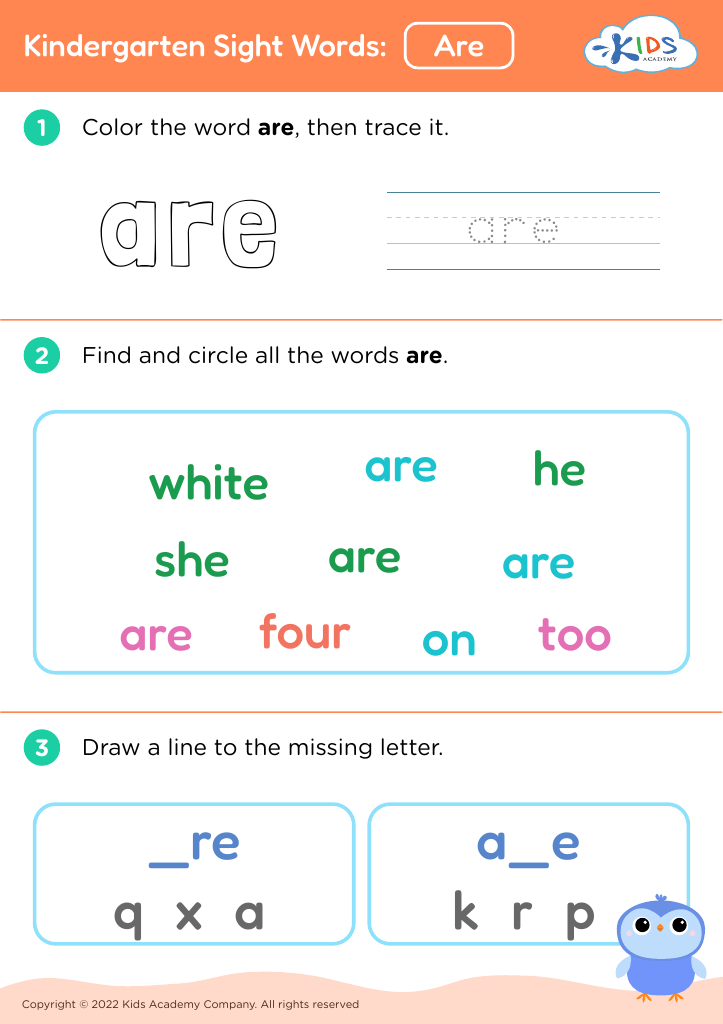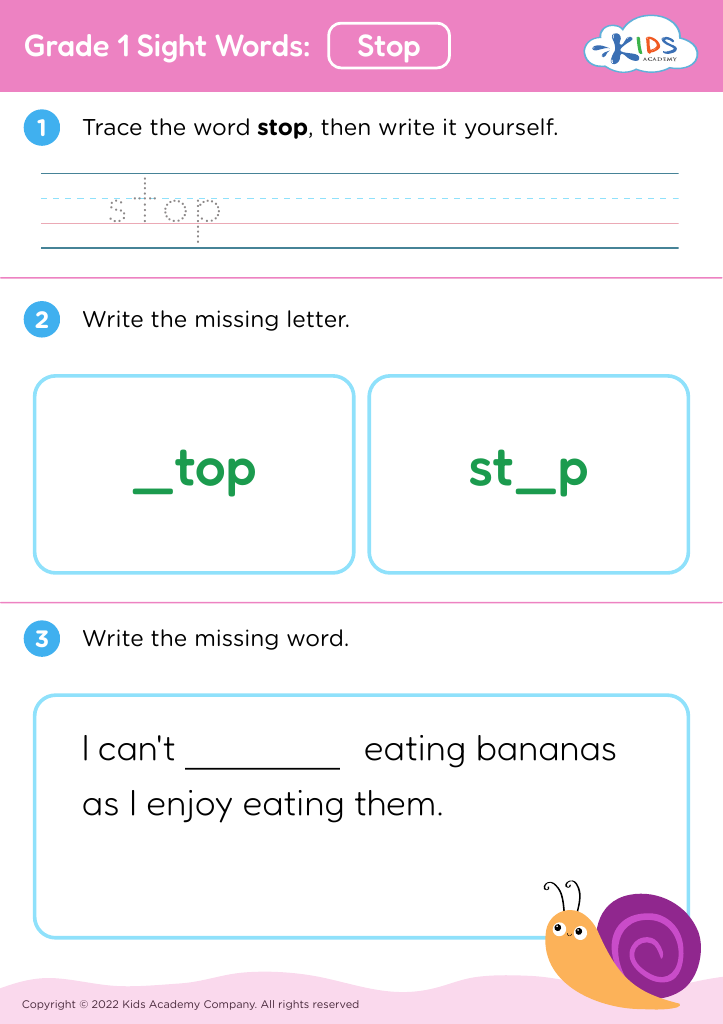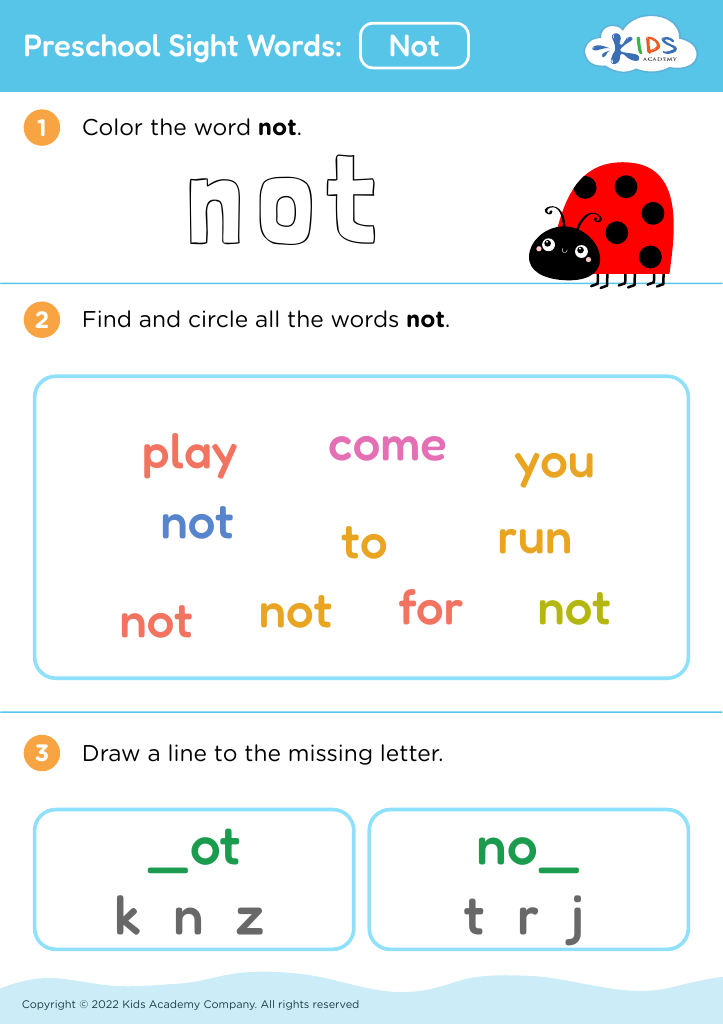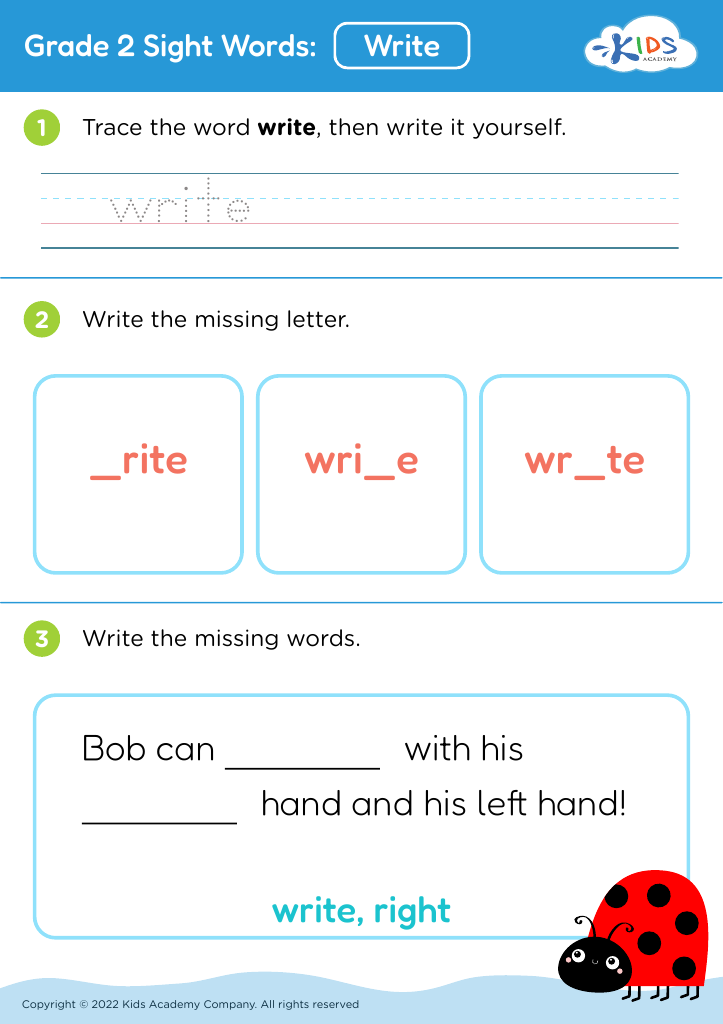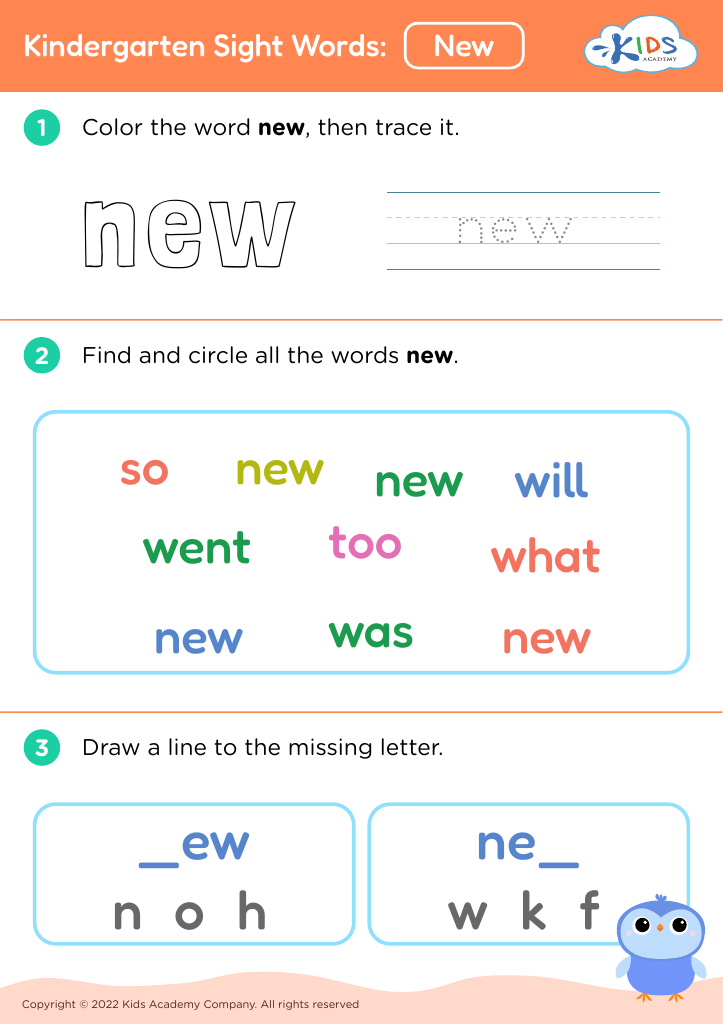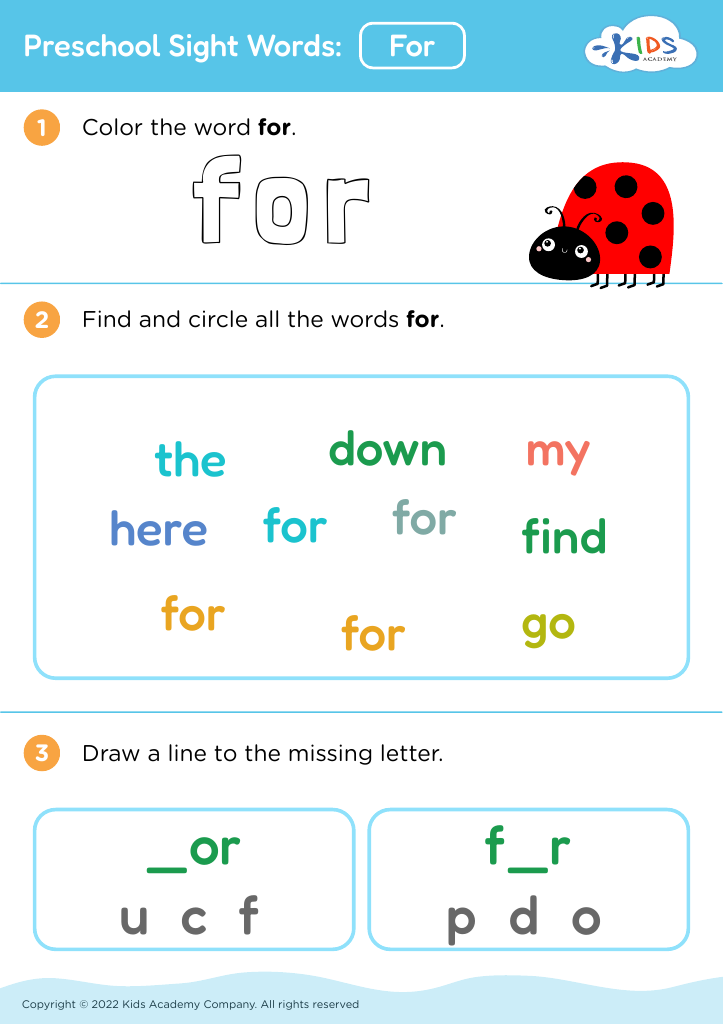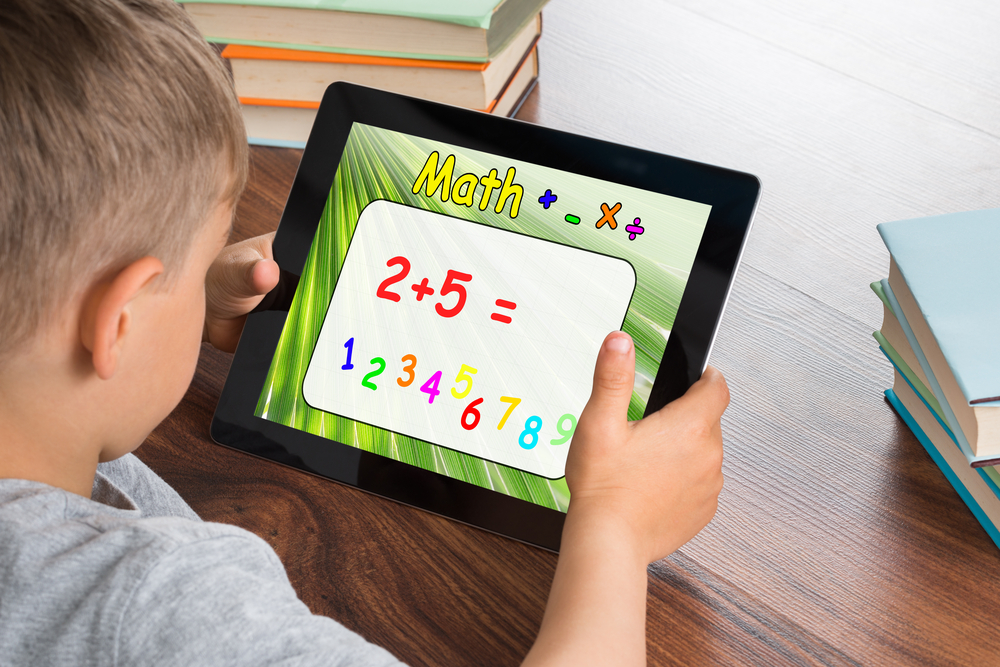Basic Addition Skills Reading Worksheets for Ages 3-8
8 filtered results
-
From - To
Discover our “Basic Addition Skills Reading Worksheets for Ages 3-8” designed to make learning fun and engaging! Perfect for young learners, these vibrant worksheets help kids master basic addition through interactive activities and colorful visuals. Focused on boosting early math confidence, each worksheet provides step-by-step guidance to support independent learning. Ideal for home or classroom use, these resources also integrate reading skills, ensuring a comprehensive educational experience. Let your child enjoy learning with these playful and effective tools, fostering a positive outlook towards math from the very beginning! Download now and start their mathematical journey today!
Parents and teachers play a crucial role in early childhood development, and basic addition skills are a cornerstone of a child's mathematical foundation. For ages 3-8, grasping basic addition helps build logical thinking, problem-solving skills, and confidence in handling numbers, which are essential for future academic achievement.
First, early exposure to addition nurtures a child's brain in crucial developmental stages, setting up pathways for understanding more complex maths down the road. Children who acquire these skills early tend to perform better in school generally, as addition forms the basis for learning other mathematical operations like subtraction, multiplication, and division.
Second, mastering basic addition fosters a positive relationship with numbers. When children see math as something they can understand and succeed at, they are more likely to develop a healthy attitude toward learning in general. This positive approach can decrease math anxiety and contribute to a more favorable overall learning experience.
Furthermore, parents and teachers can integrate real-world examples, reinforcing the practical applications of addition. Simple daily activities like counting toys, apples, or even fingers can make learning addition enjoyable and meaningful, embedding these skills through consistent, playful practice.
Investing in early math literacy not only delivers immediate educational benefits but also sets the stage for lifelong numeracy and critical thinking skills.
